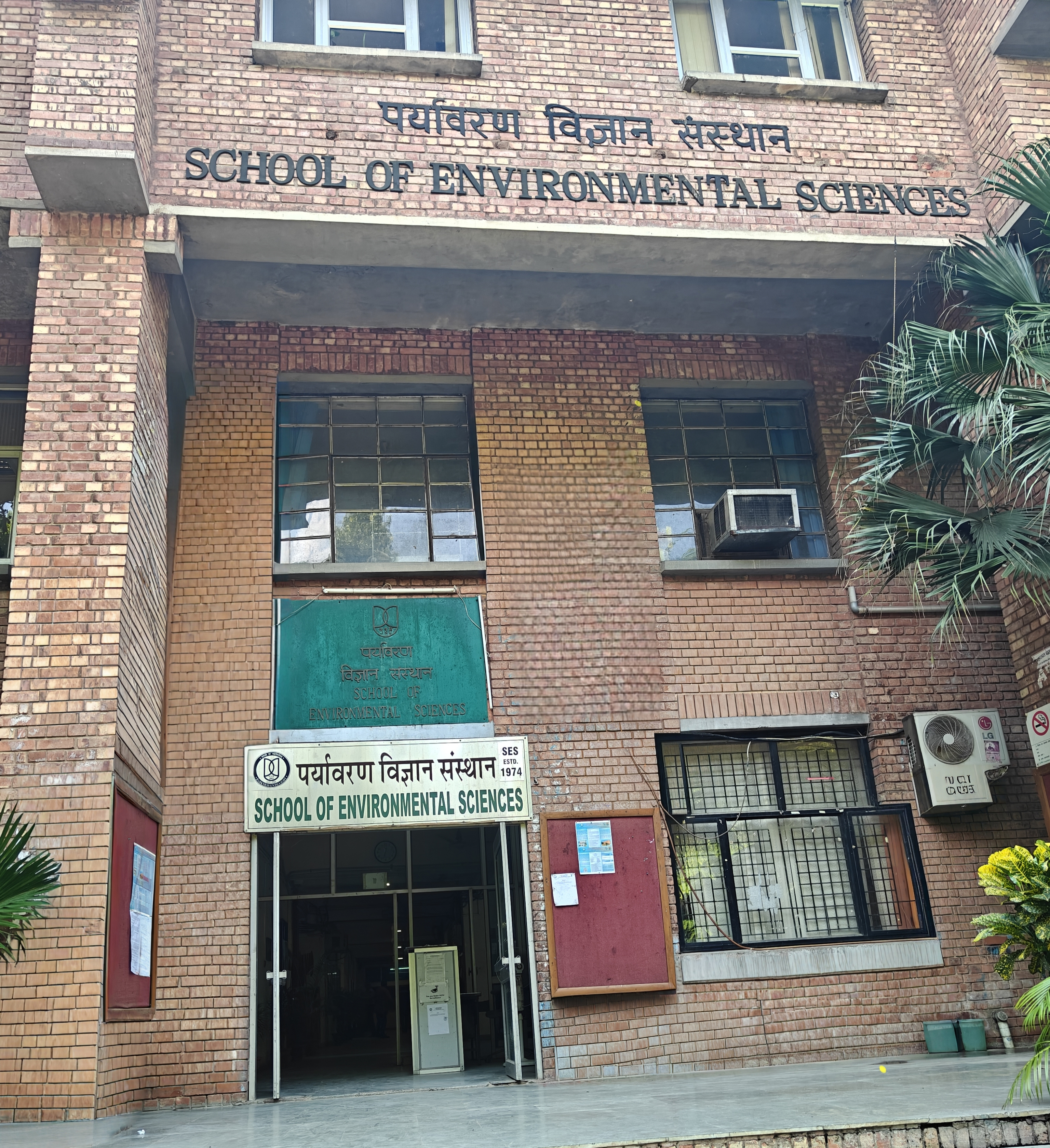Skip to main content

The School of Environmental Sciences was established in the year 1974 and was the first of its kind in India to impart education and initiate research in environmental sciences. The school has been offering the M.Phil./Ph.D. Program since 1975 and the Master of Science (M.Sc.) Program since 1987 successfully. Ever since its inception, the school has been engaged in multidisciplinary research in different areas of environmental sciences such as environmental biology, ecology, environmental pollution, earth sciences, environmental modelling, climate dynamics, and atmospheric science. With the diverse academic and research background of its faculty, the school is uniquely placed to conduct path breaking research in environmental sciences. Many of the current and past faculty members are known internationally for their significant contributions in different fields of environmental sciences. Its faculty members have received various awards, have been the members of different Science Academies and have provided academic leadership in different educational and research institutions.
The school’s faculty has been engaged in several national and international collaborative research projects, drawing financial resources from leading national and international funding agencies. This has immensely contributed to the development of laboratory infrastructure in the school. Not surprisingly, the school has performed very well in research during the last 10 years, having published several hundred research articles in leading peer reviewed journals of international repute. During this period, more than 200 students have successfully completed their doctoral degree from the school and the school’s alumni have found placement in different educational, research and other institutions of the country and abroad. Currently, the school is ranked between 301-350 in QS World ranking by subject with IIT Bombay, IIT Kharagpur and Indian Institute of Science (IISc) Bangalore being the only Indian educational institutions ranked above it.

